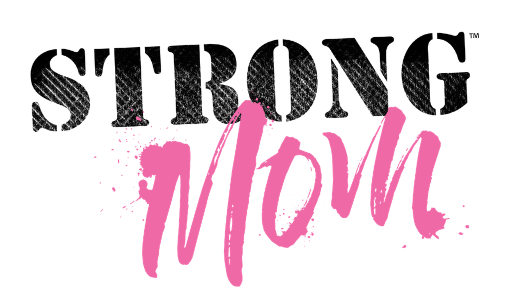I know that most moms who have trained and exercise during their pregnancy want to return as quick as possible and get back to the gym, or get back to their regularly scheduled exercise routine, but it’s not as simple as waiting for the 6 week mark to arrive and then go full throttle back to it.
Recently a friend of mine asked when she could return to working out again. She just had a baby a month ago, but moms who are used to exercising aren’t used to sitting still for so long after giving birth. I know I wasn’t! And hearing the doctor clear you for exercise isn’t always the golden ticket you think it is.
When most women are given the ‘ok’ to exercise after giving birth, usually around the 6 week mark, they’re so excited and go back to their regular scheduled exercise routine without giving a second though about the safety of the exercises they are doing. The problem with this is that all exercise isn’t created equally. Your doctor doesn’t know if by “exercise” you’re talking about Cross Fit, or walking around the neighborhood. In any case, if you have been cleared for exercise, your doctor most certainly means light and gentle exercises.
3 years ago I didn’t know that. And so after the birth of my daughter I went right back to it; starting running, doing jumping jacks and a whole lot of other inappropriate-for-a-new-mom-exercises. It seems crazy knowing what I know now, and is no wonder it took so long for the incontinence (ie: urinary leakage) to stop.
But my doctor checked me before giving me the OK
The day you are discharged from your care provider; your OB, or midwife, they will most likely do an internal exam to check your ovaries and uterus. However, they are not checking, nor are trained in assessing prolapses, internal tearing or how strong your core is, and if its functioning optimally. Only a pelvic floor physiotherapist can check this for you. (read more about pelvic floor physiotherapists here)
A personal trainer specializing in postnatal training and rehabilitation (someone like moi!) can help you strength training to rehabilitate your body so you don’t have lingering issues for months or years to come. Rehabilitation includes re-training your core and pelvic floor, helping to get into an optimal postural alignment to make moms strong and stable and prepare you for all the activities you used to do, and all the coming activities you will be doing, including carrying around that oh so heavy baby in the car seat!
The problem is that core and pelvic floor rehab exercises, breathing drills, bodyweight training and walking aren’t commonly prescribed by doctors and most personal trainers.
Why do I need to fix my core, what happened?
During the 9 months it took to grow your baby, your body was changing to accommodate the growing baby;
• The increased fluids and placenta placing intra abdominal pressure pushing everything outwards in every direction potentially causing diastasis recti (separation of the abdominal walls)
• Weeks and months in poor posture and alignment causing back pain and glute weakness and thus instability in the body
• The stretching of the abdominal muscles and pelvic floor muscles beyond their usual length
• Compromised ability of the diaphragm to descend and ascend during pregnancy
• length of time pushing
• medical interventions used (ie: forceps, vacuum, episiotomies) can also damage the pelvic floor muscles
All of these reasons are why a new mamma needs to take it easy, and properly rehabilitate her body before starting to ‘get her pump on’ or resume her fitness activity of choice.
So when can I resume my running, or high intensity activities again?
Definitely not after your 6 week check up. Be patient, because if you’re body hasn’t been retrained and rehabilitated, returning to high impact activities will impact your short-term and long-term health. This means if you have rehabilitated your body, you have no pelvic floor dysfunction (this means prolapse or urinary leakage) you should be ready to go after 3 months of consistent postnatal-specific strength training.
Know that you are in recovery, and start slowly. It’s more important to gradually work back up to where you left off before having your baby, rather than going full throttle right away, which can set you up for injury and pain.
At the 6 week mark, exercises that are beneficial include:
• breath work
• walking
• core restoration
• body weight
• resistance band exercises.
Exercises to stay away from:
• planks
• ccrunches
• leg raises
• heavy weight training
• jumping
If you’re looking to learn more, want to strengthen your core and pelvic floor, I offer group classes and one on one in-home personal training. Click here to Learn more.


